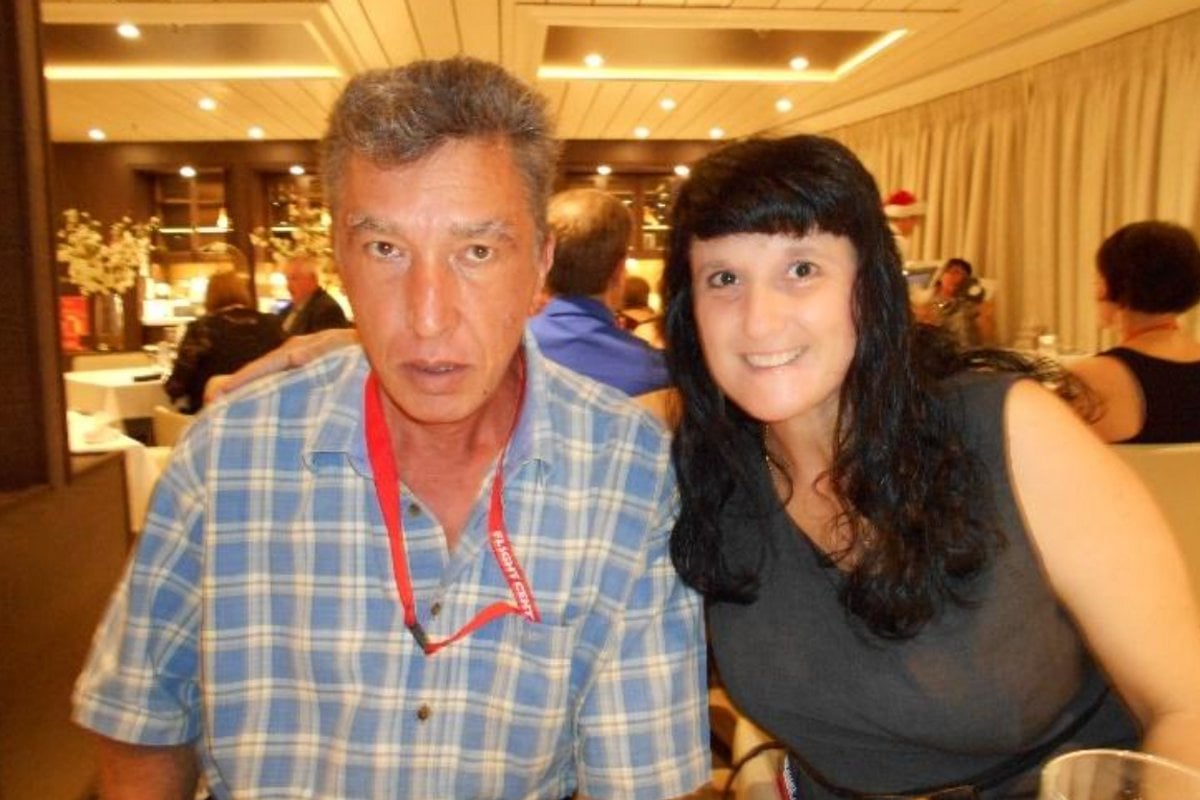
When Antoneta Krzeva started caring for her god-brother, Zoran Pelovski, full time, she had no idea the challenges she would face in trying to provide him with the best care she could.
Prior to quitting working to look after Zoran, Antoneta worked as a disability support worker, earning roughly $45 per hour. Now on the government's Carer Allowance, which allocates $154 a fortnight, she has to survive on around $11 a day — a stark contrast to the Australian minimum wage, which is $24.10 per hour.
Antoneta and Zoran's parents first met in Darra, Brisbane, in the '70s after both immigrating from Macedonia. The two couples had a strong bond, and after they each welcomed children, Antoneta and Zoran's mothers became god-parents to each other's kids.
 Zoran Pelovski (centre) and Antoneta Krzeva (right). Image: Supplied.In 1981, tragedy struck the family when Zoran was charged with killing his 21-year-old sister, Violeta. Though undiagnosed at the time, it was later found he had paranoid schizophrenia, and after spending four years in prison, Zoran spent another seven years in a psychiatric hospital.
Zoran Pelovski (centre) and Antoneta Krzeva (right). Image: Supplied.In 1981, tragedy struck the family when Zoran was charged with killing his 21-year-old sister, Violeta. Though undiagnosed at the time, it was later found he had paranoid schizophrenia, and after spending four years in prison, Zoran spent another seven years in a psychiatric hospital.

.png?alt=media&token=18dc107e-705e-4c58-90cc-aa8c75b0e42f)
%20copy.png?alt=media&token=1bb4395a-1b70-497a-9d1f-22f8883e85ab)
Top Comments